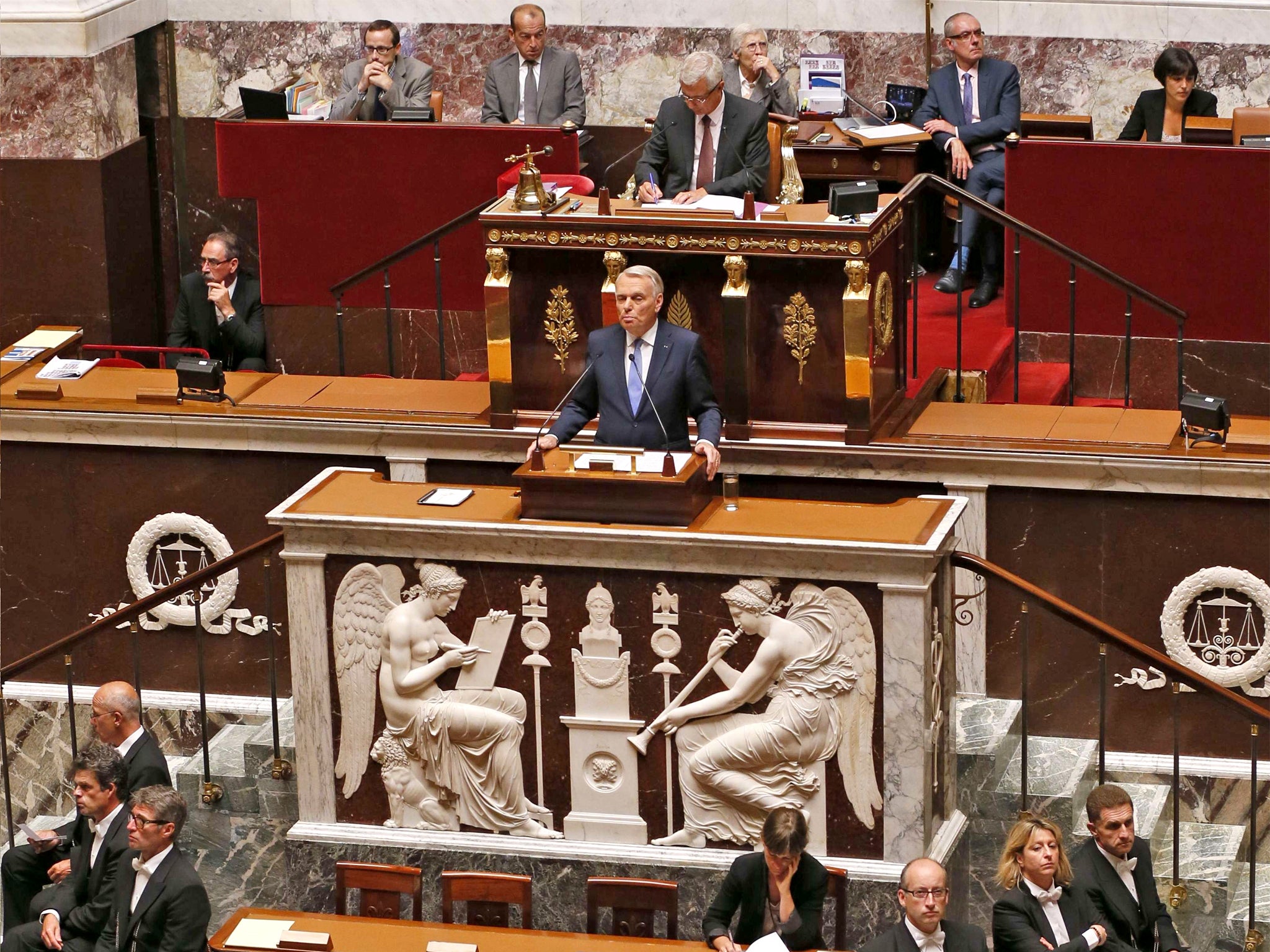Syria crisis: Deep conflicts surface as French debate military strike
Government accused of hitching itself to an American ‘adventure’ without UN backing

A stormy debate in the national assembly tonight laid bare deep conflicts in French political opinion on President François Hollande’s plans to join the US in punitive air strikes on Syria.
The main centre-right opposition party accused Mr Hollande of betraying traditional French policy by “hitching” himself to an American “adventure” without the support of the United Nations.
Christian Jacob, parliamentary leader of the Union pour un Mouvement Populaire (UMP), said that a “surreal Paris-Washington axis” was running “head down” into war “without allies,” without legal backing and without the support of the French people.However, the UMP is itself split on how to deal with the Syrian crisis.
Nicolas Sarkozy, the party’s former leader, is reported to be strongly in favour of action to punish the Syrian regime for its alleged use of chemical weapons in an eastern suburb of Damascus on 21 August.
There was no vote at the end of tonight’s two-hour debate. President Hollande has a constitutional right to commit the French military to actions that last less than four months. The government has hinted, however, that it may put the issue to a parliamentary vote next week if the US Congress supports air-strikes against the Syrian regime when it meets from Monday.
The Prime Minister, Jean-Marc Ayrault, opening the debate, said there could be no doubt that the Assad regime had been responsible for the “most massive and most terrifying use of chemical weapons this century”. Cheered by Socialist members but heckled by the right, he said that France was ready to join an “international alliance” to launch “limited” and “proportional” attacks on relevant targets in Syria.
A French intelligence dossier, released on Monday, had left no doubt who was responsible, he said. “All the victims were in areas held by the opposition. We are sure that Syria has one of the largest stocks of chemical weapons in the world… We are sure that the rebel force do not have the capacity to launch an attack on this scale.”
To refuse to respond, Mr Ayrault said, would be to endanger not just the whole region but the whole world. “What kind of message would we be sending to other regimes such as Iran or North Korea?”
Mr Jacob, of the UMP, accused President Hollande and the government of allowing the US Congress to engage French forces while the French parliament was forced to “keep its hands by its sides”. “Where are our allies? Are we really going to rush head down into this adventure?”
The UMP, however, finds itself entangled in half-remembered Gaullist doctrine. The party’s president, Jean-François Copé, said earlier in the day that Mr Hollande should refuse a parliamentary vote to uphold the presidential prerogative in foreign and defence affairs imposed by Charles de Gaulle on the constitution of the Fifth Republic from 1958.
Join our commenting forum
Join thought-provoking conversations, follow other Independent readers and see their replies
Comments